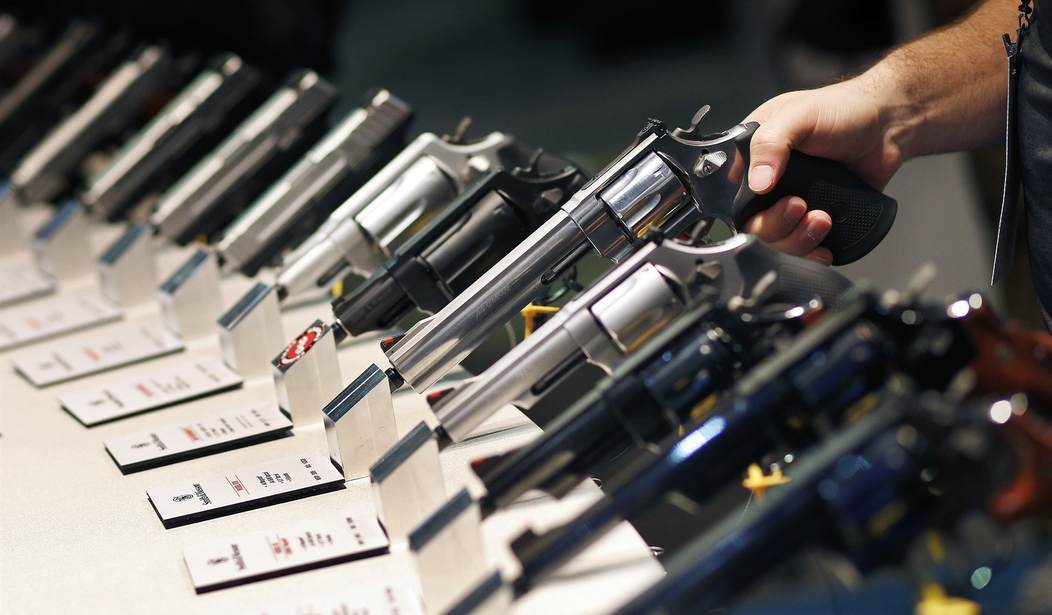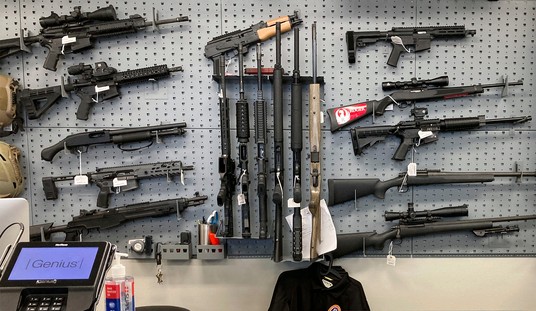Earlier this year, the government of Mexico filed a $10-billion lawsuit against several (but not all) of the major gun manufacturers in the United States, accusing them of intentionally arming drug cartels south of the border and turning a blind eye to the widespread violence inflicted by the cartels and their illicitly-obtained firearms. The Mexican government has received an assist in the form of legal assistance from American gun control supporters, who view the lawsuit as an avenue to bankrupt some of the biggest names in the firearms industry (or at least force them to pay out big money in their defense).
There hasn’t been a lot of action in the case since the initial filing, but on Monday the gun makers (including Smith & Wesson, Ruger, Barrett Firearms Manufacturing, Beretta, and Glock) filed a request with a federal judge asking that the lawsuit be dismissed.
“At bottom, this case implicates a clash of national values,” the companies argued. “Whereas the United States recognizes the right to keep and bear arms, Mexico has all but eliminated private gun ownership.”
Mexican Foreign Minister Marcelo Ebrard during a United Nations Security Council meeting on small arms on Monday called the country’s decision to file the unusual lawsuit in August “a question of principle and a moral obligation.”
The lawsuit claimed the companies undermined Mexico’s strict gun laws by designing, marketing and distributing military-style assault weapons in ways they knew would arm drug cartels, fueling murders, extortions and kidnappings.
You can read the entire brief for yourself here, and I’d encourage you to take a look when you’ve got 20-30 minutes to wade through the legal arguments. Attorneys for the gun makers approach Mexico’s lawsuit from a number of different angles, all of them suggesting that the litigation should be dismissed.
First, Mexico does not have Article III standing to bring this case. It is a cardinal rule of standing that an injury is not fairly traceable to the defendant when it “results from the independent action of some third party not before the court.” Simon v. E. Ky. Welfare Rts. Org., 426 U.S. 26, 41-42 (1976). And here, the complaint admits that all of the Mexican’s government’s asserted injuries stem from violence committed by third-party criminals in Mexico, mostly using guns the defendants do not manufacture or sell, and which they obtain through a long and attenuated chain of other independent criminal actors. Against this factual backdrop—detailed in the complaint itself—Mexico fails to allege that any of its injuries are fairly traceable to any named defendant. For this reason alone, the case must be dismissed.
Second, even if Mexico had standing, federal law would bar its claims at the threshold. Under the Protection of Lawful Commerce in Arms Act (PLCAA), federally licensed firearms manufacturers and sellers enjoy broad immunity against lawsuits claiming harms “resulting from the criminal or unlawful misuse of a [firearm]” by a “third party.” 15 U.S.C. § 7903(5)(A). With only a few narrow exceptions, no such claim may be “brought” in “any Federal or State court.” Id. § 7902(a). Although Mexico tries to shoehorn some of its claims into these exceptions, it does not succeed. Instead, its real hope appears to be convincing the Court that the PLCAA does not apply at all to protect U.S. firearms companies against foreign plaintiffs. But the plain text of the statute forecloses that theory: It clearly protects U.S. firearms companies from suit in U.S. courts based on their conduct in the U.S. The presence of a foreign plaintiff, if anything, makes Mexico’s case even less viable than the numerous cases brought by domestic plaintiffs and rejected under the PLCAA.
But even if the court decides that Mexico can file its lawsuit despite the Article III and PLCAA concerns, the defendants say that the allegations made by Mexico have already been made in similar form by American cities that have sued gun makers in the past, and “time after time, federal and state courts rejected those claims on the pleadings, holding that firearms companies cannot be held liable for the remote harms caused by third-party acts of criminal violence.”
The defendants also argue that the firearms industry “owes no common law duty to Mexico,” adding “even where corporations directly sell harmful products to foreign citizens, courts routinely reject claims that they have any legal duty to protect foreign sovereigns from derivative harms. The absence of duty is especially clear here, where Mexico does not even allege that the defendants make private sales in Mexico.”
The final two arguments to the court deal highlight even more issues with the basis of the lawsuit.
Fifth, Mexico fails to state a “public nuisance” claim. Numerous courts in multiple contexts, including in cases involving firearms, have held that the public-nuisance doctrine does not apply to the manufacture and sale of lawful products. Otherwise, companies would be subject to an endless chain of liability based on the misuse of their lawful and non-defective products by third parties they cannot control.
Finally, Mexico cannot invoke Mexican tort law to impose liability that would not be allowed under U.S. law. Under bedrock principles of international law, a foreign nation cannot use its own law to reach across borders and impose liability based on conduct in another country that was lawful when it occurred there. By trying to do so, Mexico is effectively seeking to impose its own gun control policies on U.S. firearms companies in disregard of the choices made by domestic legislatures and embedded in the federal and many state constitutions.
All in all, I think the gunmakers have a strong argument in favor of tossing this politically motivated public relations stunt out of court. Don’t expect that to happen anytime soon however. Mexico’s government has until January 31st of next year to respond to the gunmakers, which means that the earliest we could reasonably expect the judge to issue his ruling would be sometime in February or (more likely) March of 2022.










Join the conversation as a VIP Member